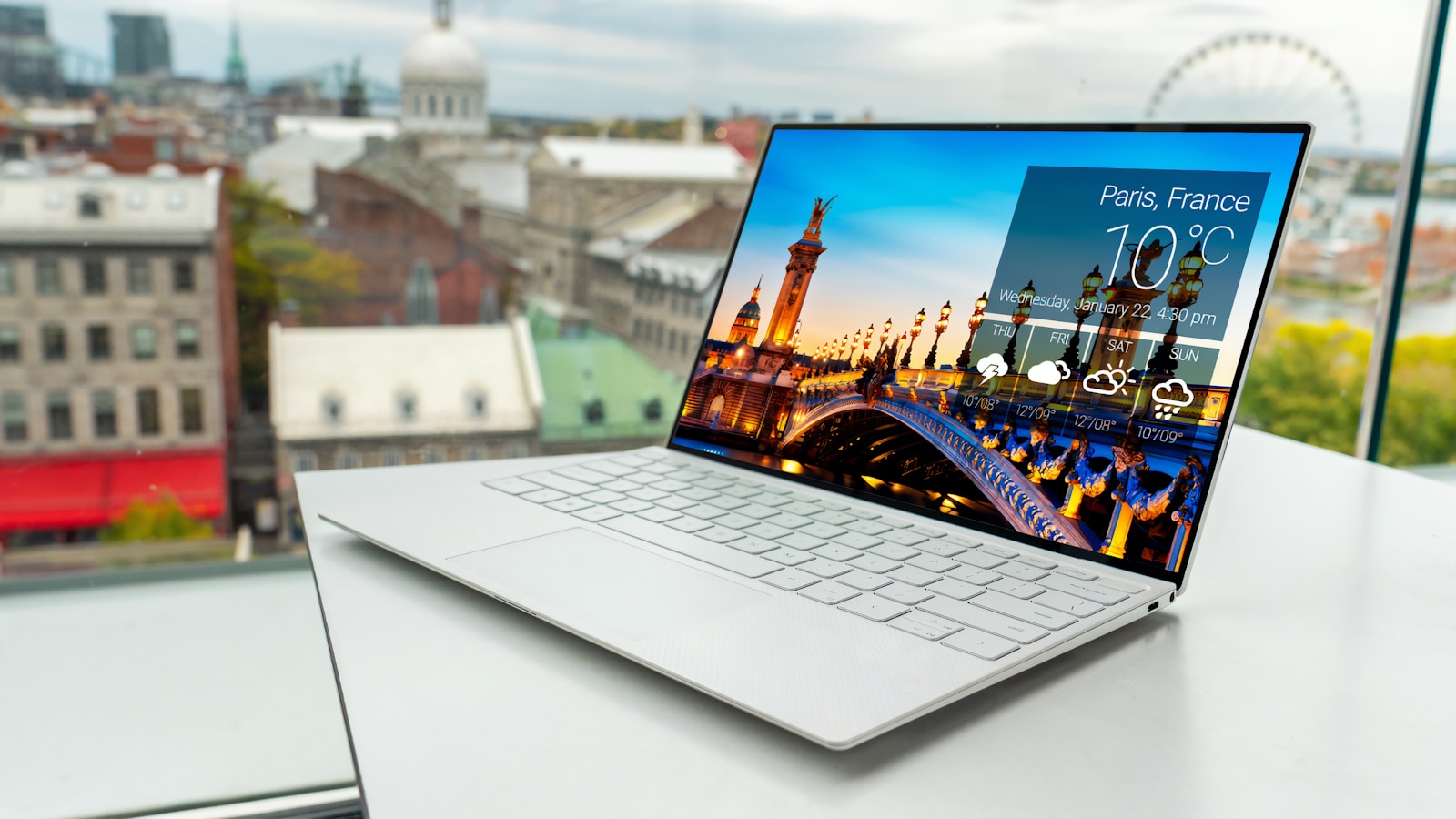Selecting a laptop for college is an adventure, not only a chore.
You have to consider the features, the cost, and how everything matches your academic story.
About 83% of students now rely on computers to handle homework and research.
Thus, knowing the fundamentals—from battery life to processing capability—is absolutely essential.
Every major, including literature and engineering, calls for a different form of machine.
For those heavy-duty software conflicts, engineering people want a beast with a strong CPU and a high-resolution screen.
Humanities students, meanwhile? For those extended study sessions, they could wish for something light enough to carry about like a feather and long enough.
So let’s inhale deeply and negotiate this laptop wilderness under direction.
Start by considering your main screams for:
- Point out important characteristics.
- Graphics Performance: If you work in engineering, choose something with a specialized graphics card—like a knight sporting sparkling armor.
- Battery Life: Look for a laptop that guarantees ten plus hours of battery life. For late-night brain marathons fueled with coffee, you might find that necessary.
- Portability: Try for a three-pound lightweight beauty. You’ll want to tote it like a reliable buddy from class to class.
- Analyze Your Learning Settings
Where does one want to study? In the quiet sections of a library? For those instances, you will definitely require excellent battery life.
Group activities? Never cut back on good speakers and webcams. You want your voice to carry, not just your pizza.
- Identify Must-have Specifications
While you consider your alternatives, keep your focus on the basics:
-
- Processor: You might avoid the suffering of poor loading times with an Intel Core i7 or AMD Ryzen 7.
- RAM: My friend, minimum sixteen GB. You will be multitasking like a circus performer with too many balls in the air otherwise.
- Storage: SSD is the fastest; an HD offers more space for less—just ask your college flat mate about the value of space.
- Networking Counts
Online courses are here to stay, so review the USB types.
Want HDMI for presentations? For a steady connection, use Ethernet Check that you have your bases covered.
- Spend Wisely in Budget
Create a spending plan that won’t cause your wallet to weep. The following is a useful breakdown:
-
- Budget laptops run between $300 and $600.
- Midrange Laptops: $600 to $1,000
- High-end laptops run from $1,000 to $2,500.
Remember: prudent investments now could help you avoid future problems rather than throwing your money at things that will gather dust.
- Studies and Assessments
Before in, search a little bit. Compare sites like a detective on a case.
Read reviews—real people sharing performance secrets.
You want a laptop that will last, not a fragile sidekick running away.
- Contractualism and Support
Not to mention it also includes backup strategies.
Like your safety net in a circus, a strong warranty is.
Choose a brand with strong customer service so you avoid finding yourself in a tense tightrope performance.
Equipped with these basic realities, you are prepared to enter the realm of laptops.
Select cautiously, and permit that laptop to be your constant friend on your great college journey.
Good fortune and perhaps the specs will always be in your advantage!
Knowing Your College Student’s Needs
Choosing the correct laptop for college is a major decision that will affect academic performance, not only a matter of taste.
Every student has a different path; their tech demands are shaped by their majors, study schedule, and extracurricular activities.
You have to first probe more into what really is required for your academic goals before you can decide.
Knowing your needs begins with determining the major you will be working towards.
distinct disciplines call for distinct technical capacity.
For those extended reading sessions in the library, a literature student might give battery life and portability top priority; an engineering major may need more robust processing power and specialized software.
Furthermore, since college life is usually full of busy surroundings—from libraries to dorm rooms—knowing where you would want to study will help decide the perfect laptop features.
Determine Your Main Needs
Your major will determine which laptop features take front stage.
If you work in technology, you will probably find yourself needing a strong CPU, specialized graphics card, and lots of storage.
Popular majors including engineering, graphic design, or computer science may need:
- Heavy Software Usage: Expect to use tools for significant graphic design, MATLAB, or AutoCAD among other heavy software programs.
- Extended Processing Power: For intensive multitasking, give CPU like Intel Core i7 or AMD Ryzen 7 top priority.
- High-Resolution Displays: For design students, screens with color accuracy and high resolution like 4K displays can make a big impact.
For non-technical majors, key elements could differ:
- Lightweight Design: Students concentrating on humanities or social sciences could wish for laptops under three pounds for simple mobility.
- Battery Efficiency: Long battery life should rank highest among all other factors. Having a laptop with ten plus hours of battery will enable you to get through a full day without running across a socket.
- Good Keyboard: If daily tasks include composing papers, a comfortable keyboard is more crucial than fancy features.
Taking Into Account Your Study Space

The laptop characteristics you will want can be much influenced by knowing where most of your study time will be spent.
While some study locations are quieter than others, using the appropriate tools for your situation will help to increase your output.
- Library or Quiet Spaces: Library or Quiet Areas: Here, a laptop with noise-cancelling capabilities and decent battery life could be quite helpful. Selecting a device that lasts long enough for those long study marathons is absolutely vital.
- Group Work or Common Areas: Collaboration in shared areas could call for speakers and webcams. For group tasks and web conferences, choose a laptop with a good webcam and built-in speakers.
- On-the-Go Study: If you fly regularly or transit between classes, give lightweight models with strong build quality top priority for daily wear and tear.
Important Desirable Characteristics of a Laptop
When looking for your perfect college laptop, pay close attention to important characteristics meant to improve your everyday work and general user experience.
A smart choice will assist prevent possible headaches brought on by inadequate technology and help your college life go lot more smoothly.
Usability depends much on display quality and size. The quality of the screen can either improve or worsen your experience whether you are enjoying your preferred shows or attending classes. You should also take mobility against screen size into account; what fits nicely in your rucksack yet offers a large workspace?
You could also choose to check the battery life of the selected gadgets. Long days on university can leave little time for recharging, hence a laptop should preferably run eight to twelve hours. Finally take into account build quality and durability; for students who are constantly on the road, a strong chassis might help to absorb wear.
Show size and quality.
One of the most obvious aspects of your laptop is its display.
Given daily standards of presentations, lectures, and web browsing, it makes sense to guarantee quality.
- Resolution counts; try at least 1920 x 1080 Full HD. For classes focused on design, 4K resolution can be helpful; but, it may greatly shorten battery life.
- Screen Size: Popular range of screen sizes is 13–15 inches. While smaller sizes improve portability, larger panels can be rather good for multitasking.
Inches of screen size portability workspace
11 – 12 Excellent Restricted
13 – 14 Good, Moderate
15 and Over Fair Excellent
If a laptop provides wide viewing angles, you won’t have to change posture to clearly see your screen. Search for models used outdoors for at least 250 nits of brightness.
Battery Life Through Long Days on Campus
Constant quest for an outlet makes long study periods exhausting.
So, your first priorities should be battery life.
While most computers say their batteries last a specific number of hours, actual use can vary.
- Aim for 8 Hours or More: Try for eight hours or more; this usually guarantees you can cover a complete day.
- Test real-world performance: Test real-world performance: Variations in battery life depend on how you use your laptop—web browsing, video viewing, or demanding software.
Power-saving Modes and Efficiency: Many contemporary computers come with power-saving modes, which can greatly extend battery life when most needed.
- Look for aspects like:
- Adaptive luminous brightness
- Modes for Saving Batteries
- Efficiency of Processor
Though typical, keep a watch on more recent technologies as Lithium-polymer, which could have better weight-to—-capacity ratios.
Create Strength and Resiliency
The perfect laptop should resist the daily grind of college life.
Over all-nights, you might drop it or spill coffee on it. Build quality then is absolutely crucial.
- Material Matters: Plastic is not as robust as metal bodies, including magnesium-alloys or aluminum.
- Watch for Ratings: Look for MIL-STD-810G ratings as a rough measure of robustness.
- Keyboard Durability: A good quality keyboard not only improves typing experience but also guarantees lifetime, particularly during intensive writing sessions.
Warranty Issues: At last, budget for upcoming mistakes. One can get piece of mind with a laptop bearing a strong guarantee. Search for a manufacturer warranty covering accidental damage minimum of one year.
Required Specifications for Perfect Performance
When choosing a laptop for college, knowledge of the subtle features is essential.
Since these parts directly affect performance, the CPU, RAM, and storage should be extensively tested.
Particularly considering Intel over AMD, processor power will determine the general operation of your gadget. Your major could call for more processing capability. Conversely, RAM guarantees seamless running of your apps and influences multitasking capability.
Furthermore important for maintaining your information, programs, and media available when needed is storage kind and size, therefore you should also pay attention to the possibilities.
Intel’s Processor Power: Unlike AMD
Knowing your processor choices is absolutely vital.
Intel has long been the main player in this field, but AMD has lately taken front stage.
- Intel Systems:
- Core i3: Ideal for web browsing and simple usage.
- Perfect for mid-range uses and great for students, core i5
- Core i7/i9: Essential for gaming or video editing, high performance for power consumers
- AMD Processor:
- Ryzen 3: Not bad for daily chores.
- Ryzen 5: Multitasking ability akin to Intel’s i5.
- Ryzen 7: Shares performance with Intel’s i7 really nicely.
Benchmarks: PassMark results from 2023 reveal that the newest Intel i7 CPUs have scores about 13,000 while the AMD Ryzen 7 has similar esteem, thereby indicating that either alternative might satisfy the needs of demanding applications.
RAM: Actually Need: How Much?
The ability of your gadget to do several tasks depends much on random access memory RAM. Most college students should have as their benchmark:
- Basic browsing, Word documents, and streaming all fit 8GB.
- Perfect for video editing, graphic creation, or multitasking—16GB
Investing in 16GB of RAM today could help the laptop last as programs grow more taxing. Although they are generally for power users, systems with 32GB should be taken into consideration should your future plans call for hard work.
SSD against HD: Storage Alternatives
The performance and user experience of your laptop will be much influenced by the kind of storage you use.
- SSD driven in solid state:
- Boot in seconds first.
- Durability: No moving components increase their physical damage susceptibility.
- Though generally more costly, quick boot times make this worthwhile.
- Hard drive drives, or HDDs:
- More space for the money makes costs reasonable.
- Slower performance: Boots and loads programs over more time.
As of 2023, many inexpensive laptops now include at least a 256GB SSD, therefore balancing performance with storage capacity. 512GB or 1TB SSDs are becoming rather typical for more demanding purposes.
Operating Systems: Customized for You
Your whole experience and degree of productivity will depend on the operating system you use.
Every OS meets various user demands and tastes by having strengths and shortcomings.
Being the most often used operating system worldwide, windows provides interoperability and adaptability. For creative projects especially, macOS offers a smoothly integrated experience. Chrome OS, meantime, is mostly targeted at consumers with less computer requirements and is renowned for simplicity.
Windows: Compatibility and Versatility
College students especially choose windows because of their legendary adaptability and flexibility.
With great software compatibility spanning several disciplines like engineering, sciences, and the arts, nearly 90% of the market still leans towards Windows.
- Broad Software Access: Almost all apps including Microsoft Office, AutoCAD, MATLAB, and Adobe Creative Cloud are available here.
- Gaming Capability: Gaming Capability: Windows provides access to gaming software and high-end game capability should gaming be a leisure activity.
Windows laptops sometimes let you upgrade more practically for RAM and storage than other systems. As academic pressures change, your device’s lifespan depends on this adaptability.
macOS: Perfect Experience for Creatives
macOS might be quite suited for students studying design, fine arts, or multimedia courses. Often preferred among creative professionals for their dependability and elegant design, MacBooks are
- Design and Creative Software: Many top design tools, including Final Cut Pro, work more effectively on Apple Macs or are limited to macOS.
- User Experience: Particularly with creative endeavors, the easy interface can help to increase concentration and output.
If you possess another Apple product—such as an iPhone or iPad—you will gain from flawless integration with Apple Ecosystem. Features like Handoff, AirDrop, and iCloud improve device performance all around.
Chrome OS: simplicity for simple chores
Chrome OS might be the ideal tool for people whose wants are basic and clear. Chrome OS is reasonably cheap since it emphasizes web-based apps.
- Affordability: Budget-conscious students will find Chromebooks perfect as they are generally less costly than their Windows and macOS equivalents.
- Simplicity and Security: Chrome OS is made for simplicity and security; its automated update function and virus prevention help to define both.
Limitations: A Chromebook might not be suitable if your major calls for specialist software running exclusively on Windows or macOS. For others in liberal arts or requiring basic web capabilities, though, Chrome OS is more than plenty.
Connectivity and Ports: Maintaining Connection
In a time where connectivity is everything, knowing the kinds of ports a laptop has will greatly affect daily performance.
Not all ports are made equal, hence the correct choice guarantees you remain connected to anything from external devices to fast internet.
USB Variables and Their Significance
Among the most important connecting tools you will come across are USB ports.
Their purposes will define how you charge gadgets, connect peripherals, or move data.
- USB 3.0: Backward-compatible with USB 2.0, USB 3.0 presents up to 5 Gbps of data transmission rates.
- USB-C: The next generation, with 10 Gbps possible speed; reversible plug design makes it easy for use. It can also assist Thunderbolt 3 for rapid data and display connections.
Look for at least two USB ports to guarantee you will be able to use a keyboard, mouse, or flash drives concurrently and to prevent the necessity for adapters.
HDMI and DisplayPorts for Presentations
For students who regularly have to present, HDMI and Display Ports become absolutely essential.
- HDMI: Most TVs use HDMI, which also lets you connect your laptop to TVs, projectors, and other displays.
- DisplayPort: DisplayPort supports better resolutions and refresh rates, hence more effective for graphics and gaming.
Size Consideration: Take notice of whether any laptops feature a combination audio jack while assessing them. Depending on your presenting requirements, look for laptops with either full-sized HDMI connectors or mini-HDMI.
Wi-Fi Standards’ Significance
Particularly for students engaged in many online classes or research projects, a strong internet connection is absolutely vital.
- Wi-Fi 5 802.11ac: Faster speeds and improved performance in busy networks make Wi-Fi 5 802.11 appealing. Usually found in computers put on sale before 2020.
- Wi-Fi 6 802.11ax: Offering notable increases in speed up to 10 Gbps, capacity, and latency over Wi-Fi 5, Wi-Fi 6 802.11 Perfect for streamers and multitaskers.
Although wireless connectivity is crucial, Ethernet ports should not be disregarded especially for people who might need consistent connections for some activities.
Budgeting for Your Laptop Purchase
Many times, choosing a laptop depends on budget.
College is costly, hence it’s important to know how to use your money carefully without sacrificing your tech demands.
- Setting a Realistic Budget: Establish a reasonable budget and make sure you account for extra costs including software, peripherals, or repairs while still knowing the highest limitations you can afford.
- Considerations for Financing Options: Many stores and manufacturers provide financing options that let you distribute expenses over time, so simplifying management of your costs.
Creating a reasonable budget
Making a budget should take your particular needs into account as well as laptop features fit for your education.
Research typical Prices: Here is a list of typical laptop category prices as of mid-2023:
- Laptop Type: Typical Cost Range
- Laptops for budgets between $300 and $600
- Middle Range Laptops: $600 to $1,000
- High-end laptops run from $1,000 to $2,500.
Consider possible sale events around year-end clearance sales or back-to- school seasons as they can drastically lower prices on more expensive models.
Considerations Regarding Financing Choices
If your budget is limited, financing options could seem appealing.
Many of well-known stores provide different terms, such:
- Interest-Free Period: Long-term savings can come from payment choices that divide expenses over multiple months without interest.
- Layaway Options: Look for layaway arrangements where you can reserve the model you like, paying in deposits until the whole amount is reached if financing is not possible.
Credit Issues: Take great care when financing; make sure you know the interest rates and terms of repayment to prevent future expensive shocks.
Evaluating Long-Term Value Against Right Now Cost
Your laptop purchase should not be finalized with an eye towards just immediate expenses.
When budgeting, take longevity and future-proofing’s importance.
- Cost-Effective Choices: Spending a bit extra upfront on a laptop that fits your needs for several years can be more wise than routinely replacing a less expensive device.
- Resale Value: Give brands and models proven to be valuable first priority. Well-known brands include Apple, Dell, and Lenovo often have better resale values, which helps to control future upgrades.
Companies and Approaches Worth Thought
Having so many alternatives available on the market might be taxing to limit down.
Still, there are respectable brands that appeal especially to college students because they offer dependability, value, and performance.
Typical Giants: Lenovo, HP, Dell
- Dell provides a dependable range to fit many purposes. While the Inspiron line serves consumers on a budget, the XPS series offers great performance for demanding customers.
- HP: Renowned for its varied products, the Pavilion is a good all-rounder for most students; HP’s Specter line features refined looks.
- Lenovo: For anyone who leans towards a lot of typing, the ThinkPad series is prized for keyboard quality and endurance.
Every one of these companies usually offers strong customer service and warranties.
Apple’s MacBook Line-up
Creative majors still love Apple mostly because of its MacBook models’ performance and look.
- MacBook Air: Perfect for students concentrated on writing and casual use, MacBook Air is lightweight with amazing battery life.
- MacBook Pro: Supporting creative activities in graphic design and video editing, the Pro range is perfect for heavy jobs with great capability and capabilities.
Students who already use iPads or iPhones could discover that the flawless interaction with the Apple ecosystem makes them want the continuity of using a MacBook.
New Emerging Brands: ASUS, Acer, Razer
- ASUS: Renowned for gaming laptops, ASUS also has excellent choices from the ZenBook line that draw design students with their breathtaking screens.
- Acer: To appeal to students on a tight budget without compromising quality, the Swift line strikes a mix between performance and price.
- Razer: Though mostly aimed at gamers, devices like the Razer Blade can be great for graphics-heavy tasks, however they sometimes demand more money.
Emerging Technologies: These companies deserve thought since their tech features and developments often reflect their cutting edge nature.
Warranty and Support: Purchasing Mindfulness
The warranty and support choices of a laptop investment are rather important.
They can tell how easily you can fix problems and keep your technology’s dependability.
Value of Warranty Coverage and Length
The warranty gives piece of mind knowing that manufacturing flaws or faults will not compromise your investment. Usually, look at a laptop warranty covering:
- Length: Manufacturer warranty length: minimum one-year.
- Types of Coverage: Look for choices that provide further peace of mind including parts, labor, and accidental damage.
Extended warranties are available for a further cost from some manufacturers. Although these can be expensive, they could be well worth it if your laptop is probably going to be subjected to possible risks of college life.
Investigating Customer Support Alternatives
Good customer service will improve your experience should problems with your laptop develop.
Research the support systems provided by different brands since this will differ greatly:
- Response Time: See how fast they answer technical questions or support calls.
- Support Channels: Convenience can be much improved by the availability of chat, email, and phone help.
Search internet forums or review websites to learn about others’ opinions about customer service responsiveness and helpfulness.
Factors for Laptop Repair Services
Even the most robust computers might have problems, hence ask about easily available repair services.
- Local Service Centers: Select a brand with local service centers or approved repair facilities to make sure you won’t be without your laptop for too long should a problem arise.
- Self-Repair Options: Review whether the brand lets you easily upgrade and some small repairs, thereby extending the lifetime of your laptop and improving your technical knowledge.
Getting ready for your laptop purchase
Extensive preparation guarantees that you select the correct equipment that satisfies all your needs before you decide on your purchase.
Research, read reviews, and carefully time your purchase.
Studying and contrasting models
Research the brands and models that fit your needs found above to start your path.
Make use of several internet resources where comprehensive specs and comparisons could be found.
- Manufacturer Websites: Keeping everything current, always review the official websites for the newest models and pricing.
- Consumer Reviews: Websites include CNET, TechRadar, or Laptop Mag offer thorough comparisons and analysis.
Use technologies that provide side-by-side comparisons for specs to guarantee you base data-driven decisions.
Reviewing and rating books
Reading first-hand reports from past users can give you essential understanding of a laptop’s performance over time. Important variables include:
- Build quality and durability: Evaluate reviews citing the laptop’s daily wear resistance.
- Performance Over Time: Get comments on models’ performance during prolonged use including possible flaws.
Platforms that compile user ratings can assist ascertain a model’s relative performance against its rivals in practical settings.
Understanding When to Make Purchase
The financial side of your laptop purchase can be much changed by timing.
Sales happen often, particularly during back-to–school seasons.
- Best Times to Buy: Notable sales usually line up with holidays including Black Friday, Cyber Monday, and August back-to-school specials.
- New Model Launch: Prospective purchases of past generations may experience notable markdowns with the announcement of new models, providing a more affordable alternative without compromising quality.
Following these guidelines will guarantee that, when it comes time to purchase your laptop, you will have all the information need to make the greatest decision for your college path.
What would you say?
Selecting a laptop for college opens a universe of options.
A laptop is your tool for creativity, your learning partner, and a portal to limitless information—not only a tool.
Your best tool is knowledge of the many options—from strong models meant for engineering students to light-weight substitutes ideal for humanities majors.
Whatever your major, knowing how personal needs interact with requirements guarantees that you make a wise choice.
This road requires much of budgeting.
Whether your inclination is for an Intel CPU or anything from AMD, every decision affects your pocketbook.
Particularly with a student’s budget, it could be important to keep in mind that a high-quality laptop can serve you longer, thereby perhaps saving you money over time.
Recent data show that 70% of students believe that investing in a dependable laptop improves their academic performance, which emphasises the need of choosing a model that suits both your requirements and financial limit.
The ideal laptop combines performance fit for your daily needs and academic goals with portability and power consumption.
Researching topics takes time as well; using official resources, customer reviews, and internet comparisons will help you towards well-rounded selections.
Students who do extensive pre-purchase research and comparison analysis statistically show 40% more satisfaction with their technical purchases—an amazing statistic that emphasises the need of thoroughness.
Remember that choosing your laptop represents an investment in your education and future as much as in technology.
Combining your own wants with necessary specs and features will enable you to choose a gadget that becomes pillar of your academic life with confidence.
Your decision should result in many accomplishments, enhancing your college education and beyond.
Often Ask Questions
Based on my college major, what laptop would be best?
First, evaluate the particular technology requirements for your subject of study.
While humanities students might gain from lightweight and extended battery life choices, technical degrees like engineering may need high-processing capability.
Knowing your major helps you match your laptop decision to your academic needs.
What must a college laptop possess in order to be truly useful?
Key characteristics are CPU processing capability, battery life, build quality, and display quality.
A good laptop should have a resolution of at least 1920 x 1080, an 8–12 hour battery, and strong construction to resist everyday grind of college life.
For college, just how much RAM do I need?
Most students would find 8GB of RAM appropriate for simple chores including document editing and online browsing.
Invest in 16GB for a better experience whether you enjoy multitasking or graphic design.
As software needs rise, it will help your laptop remain usable.
Which storage device— SSD or HD—should I use?
Solid State Drives SSD are fast boot-up times, speed, and durable, thus choose them.
Though often slower but more reasonably priced, Hard Disc Drives HDD offer less performance than these.
For most students, a 256GB SSD finds a decent balance.
For college students, which running system is best?
With their wide program interoperability, windows is the most flexible option.
For creative majors, MacOS is great because of its stability; for basic, web-based chores, Chrome OS is best.
Choose one that fits your academic requirements most closely.
I should budget what for a college laptop?
Based on your need, create a reasonable budget.
Budget Laptops $300 – $600, Mid-Range Laptops $600 – $1,000, and High-End Laptops $1,000 – $2,500 average pricing ranges as of mid-2023. Look for sales in seasons related to back-to- school for better deals.
Why, on a college laptop, is build quality crucial?
The build quality of a laptop counts since college students lead active lives.
Daily wear and tear—including possible drops and spills—can be handled by a robust laptop.
To guarantee lifetime, look for metal bodies with better MIL-STD-810G standards.
Which warranties and support choices ought I to take into account?
It is important to have a warranty covering labor and parts minimum one year length.
Investigate the brand’s customer support choices to be sure they offer rapid answers and useful services should any problems develop.
How might I get ready for the acquisition of a laptop?
Look at and evaluate models that fit your needs.
Consult consumer reviews to get understanding about durability and performance.
Purchasing the correct equipment for your academic path also helps you save money by timing your purchase during big sales events.








